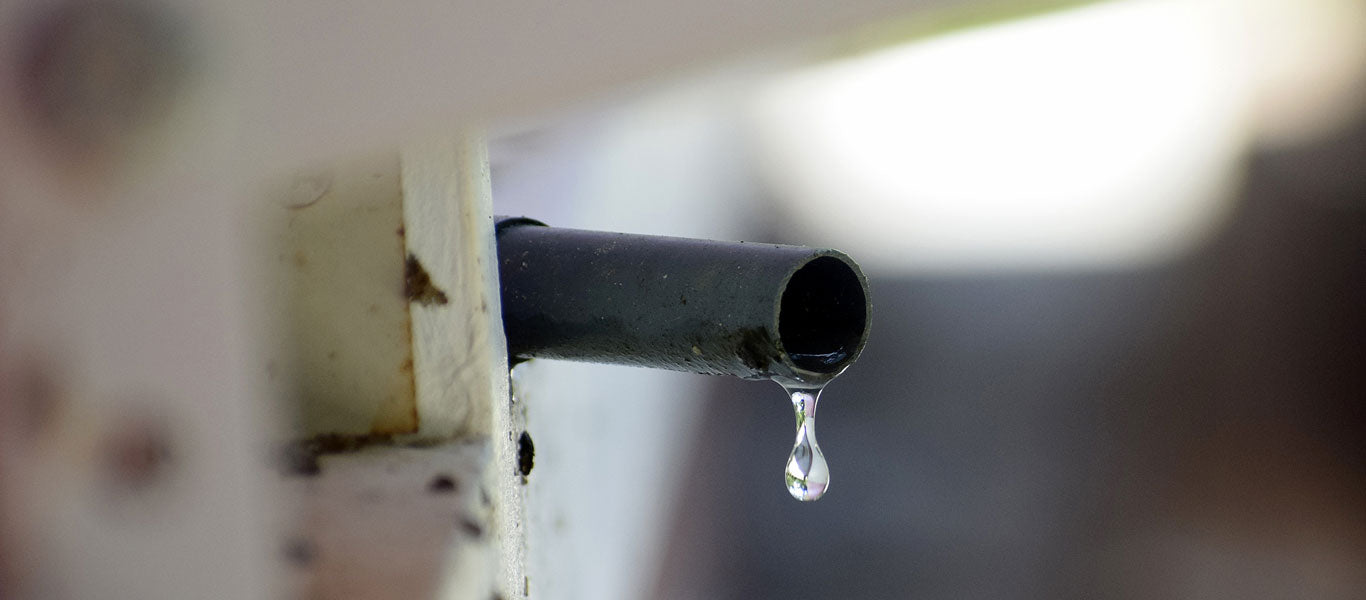Water leaking from your air conditioner unit isn’t dangerous but can cause a lot of damage to your home. However, a refrigerant leak is unsafe for you and the environment. In either case, a leak will require to be fixed by an HVAC professional.
It might be alarming to observe water dripping from your air conditioner or pooling beneath it, but it’s probably a minor issue. You already know air conditioners cool your home, but you might realize air conditioners don’t produce cool air. Air conditioners cool by removing heat and humidity from the home’s air. Condensation is produced during the process. Sometimes, issues arise that create too much condensation or prevent the condensation from draining away, resulting in water leaking from the air conditioner.
You may also know that air conditioners use refrigerants to cool your home’s air. The refrigerant in your air conditioner is a chemical compound that flows through the system’s refrigerant lines, continually cycling from a liquid to a gas. Occasionally, air conditioners develop refrigerant leaks.
Once you determine whether your air conditioner is leaking water or refrigerant, you can take action to resolve the issue.

Discover Top-Grade Air Conditioners: View Our Products Today
Water vs. Refrigerant Leaks
The liquid leaking from your air conditioner is most likely nontoxic water produced when the home’s warm, humid air condenses on the evaporator coils. Leaking water may result from a disconnected or clogged drain line, broken condensate pump, clogged or cracked drain pan, frozen or dirty evaporator coils, or a dirty air filter.
Refrigerant leaks are less common but potentially hazardous to your health and the environment. The refrigerant in your air conditioner shifts between two states, liquid, and gas. When refrigerant leaks from an air conditioning system, it quickly evaporates into a gas and dissipates into the air. The health risks are low, but prolonged exposure to refrigerant gas may cause mild symptoms like headaches, nausea, dizziness, and irritation of the eyes, nose, and throat.
How to Tell if Your Air Conditioner is Leaking Water
When functioning correctly, the condensation an air conditioner produces drips off the evaporator coils and is collected in the drain pan, directed into the drain line, and carried away from the unit. A malfunctioning air conditioner may cause water to drip from or pool beneath the unit.
There are several indications that your air conditioner is leaking water. Drips or puddles beneath your unit, water damage near the unit, water spots on the unit’s fan or the floor, a full drain pan, or a pervasive smell of mold or mildew in the home can signal moisture problems related to your air conditioner.
How to Tell if Your Air Conditioner Is Leaking Refrigerant
While puddles indicate water leaks, refrigerant leaks are determined by the improper functioning of your air conditioner. As previously mentioned, leaking refrigerant is in a gaseous state so you won’t find a pool of liquid refrigerant on the floor.
If your air conditioner runs, you might have a refrigerant leak, but your home isn’t cool, it takes longer to cool, or warm air blows from the vents. These issues will also be reflected in a higher than usual electric bill. Additionally, refrigerant leaks can cause ice on the evaporator coils or copper refrigerant lines.
Refrigerant leaks should be addressed immediately. Refrigerants are harmful to people and the environment. Running your air conditioner while it’s leaking can cause additional damage to the system. Turn off your air conditioning system, open windows and turn on fans to ventilate your home, and call an HVAC service.
What Should You Do When Your Air Conditioner Is Leaking Water?
If your air conditioner is leaking water, turn it off. There is a risk of electrical shock and shorting out the system.
Your first task is to identify the source of the problem. Inspect the drain pan for cracks, corrosion, and clogs. A pan full of water indicates a clog is stopping the outflow of water. Remove and empty the drain pan. Clear any clogs with a paperclip or piece of wire.
Inspect the evaporator coils. Allow frozen coils to defrost and dry out. Call a professional to inspect your unit, and don’t turn your air conditioner back on until the issue has been addressed. You might have a refrigerant leak that can cause further damage by running your air conditioner.
Next, you’ll want to dry up the water because mold likes to grow in damp environments. Use towels or a wet/dry vac to clean up standing water and a fan to dry up the area. Place a bucket near the unit to catch any drips.
Going forward, monitor your air conditioner to see if the issue has been resolved. Keep your air conditioner cleaned and maintained to prevent another occurrence. If water continues to leak, call a professional to inspect the unit.

Discover Top-Grade Air Conditioners: View Our Products Today
Conclusion
If water leaks from your air conditioner, don’t panic; water is harmless. Don’t ignore the problem either. Water can damage your home, short out the air conditioner, cause electrical shock, or foster mold growth. Turn off the system, identify the issue, dry up the water, and call an HVAC service.
When refrigerants leak from air conditioners, they are in a gaseous state. Leaks are typically identified when the air conditioner becomes incapable of cooling the house. Refrigerant leaks are more severe than water leaks because they are taxing to your air conditioning system and can cause additional issues. However, refrigerants are toxic, and refrigerant leaks cause some people to experience symptoms like headaches and nausea. Turn off your system and call an HVAC service immediately.
Regular maintenance and inspections are the keys to avoiding future air conditioner problems.








1 comment
SISCOM
Xem thêm nguyên nhân chảy nước cửa gió điều hòa: https://siscom.vn/6-nguyen-nhan-gay-dieu-hoa-chay-nuoc-o-cua-gio/